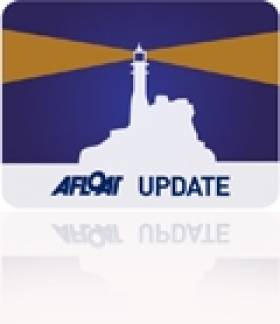Displaying items by tag: Eddie Warden Owen
Fastnet Race Limit Increased
The Rolex Fastnet Race reached its entry limit 10 days after opening and over 130 boats are on the waiting list. "We were staggered at the speed with which people signed up," said RORC Commodore Andrew McIrvine. "We had to do something to satisfy the huge interest, and taking the non IRC yachts out of the total is a fair solution allowing more loyal RORC racers to get their boats into the race."
Removing the non-IRC classes will add about 50 more places to the total. "We are delighted that the Volvo's and IMOCA's want to compete in the race and that the Class 40's are coming en-masse," said RORC Chief Executive, Eddie Warden Owen. "It shows the popularity of the Rolex Fastnet that these professionally sailed boats want to join the race. However without this initiative, they would be taking valuable places away from less experienced offshore racers who view this race as a great personal challenge - their 'Everest' of sailing."
Sutton Harbour increase berthing capacity
To cater for the number of boats arriving in Plymouth, Sutton Harbour Marina has increased the amount of space by making the whole of the berthing area adjacent to West Pier and the Barbican available to the Rolex Fastnet fleet. Sutton Harbour has also become the official berth provider for the race and Chief Executive Nigel Godfroy is pleased to be associated with the race. "Sutton Harbour Marina welcomes the return of this world famous race," said Nigel. "We are very proud of the quality of facilities we have here in Sutton Harbour and being selected as the official berthing provider for the Rolex Fastnet Race. We look forward to welcoming the extra large fleet in August this year."
To accommodate the increased number of entries, space has been booked in Queen Anne's Battery, adjacent to Sutton Harbour and in Plymouth Yacht Haven in the Cattewater, where a water taxi service will be set up to connect competitors with the race office based at Sutton Harbour.
The 2011 Rolex Fastnet Race starts in Cowes, Isle of Wight on Sunday 14 August.





























































